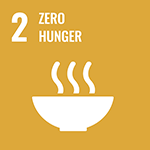Development of Breeding and Water Management Technologies for Safe and Nutritious Rice Production
Principal Investigator


Prof. Md.
Department of Soil Science, Bangladesh Agricultural University
Rafiqul Islam
ODA Recipient Country
People's Republic of Bangladesh
Research Institutions in Japan
The University of Tokyo / The National Agriculture and Food Research Organization (NARO) / Akita Prefectural University
Research Institutions in Counterpart Country
Bangladesh Agricultural University (BAU) / Bangladesh Rice Research Institute (BRRI) / Bangladesh Institute of Nuclear Agriculture (BINA) / Department of Agricultural Extension (DAE)
Adoption fiscal year
FY 2021
Research Period
5 Years
Overview of the Research Project
Lay the foundations for breeding high nutritional value/low arsenic content rice and develop cultivation technology
Bangladesh is one of the world’s leading growers and consumers of rice. This means that health damage caused by ingesting a poisonous element (arsenic) via rice consumption is a major social concern, as are deficiency diseases (hidden hunger) caused by the low levels of trace nutrients (iron and zinc) in rice. In this project, we are aiming to use breeding and water management technologies to establish technologies for the production of safe rice with a low arsenic content and rice with high nutritional value containing high levels of iron and zinc.
Making safe, healthy rice the norm!
Establishing technologies for breeding and cultivating safe, highly nutritious rice and encouraging their adoption in Bangladesh will improve the health of the population. The technologies obtained in the course of this project can also be used in other regions of the world facing similar problems.
Photo gallery
Research Project Web site
Press Release
Links
Projects
Contact Us
Japan Science and Technology Agency (JST)
Department of International Affairs
SATREPS Group
TEL : +81-3-5214-8085
Related articles by Category
- Bioresources
Bioresources

 Republic of Indonesia
Republic of Indonesia
Promoting the blue economy by utilizing seaweed resources!
Development of Sustainable Seaweed Based Functional Products for Promoting Blue Economy
- Bangladesh
Disaster Prevention and Mitigation

 People's Republic of Bangladesh
People's Republic of Bangladesh
Mitigate earthquake damage in densely populated urban areas!
Technical Development to Upgrade Structural Integrity of Buildings in Densely Populated Urban Areas and its Strategic Implementation towards Resilient Cities
- Asia
Environment / Energy
(Global-scale environmental issues)
 Kingdom of Thailand
Kingdom of Thailand
“Natural rubber seeds”, the unlimited potential hiding in natural rubber plantations
Utilization Technology of Rubber Seeds for Green Products to Mitigate Global Warming and Plastic Pollution
- SDGs : Goal.2
Bioresources

 Republic of Indonesia
Republic of Indonesia
Achieve sustainable vegetable production in tropical regions using advanced breeding technology!
Breeding Innovation in Chili Pepper and Tomato to Accelerate Sustainable Vegetable Production in Tropical Regions























